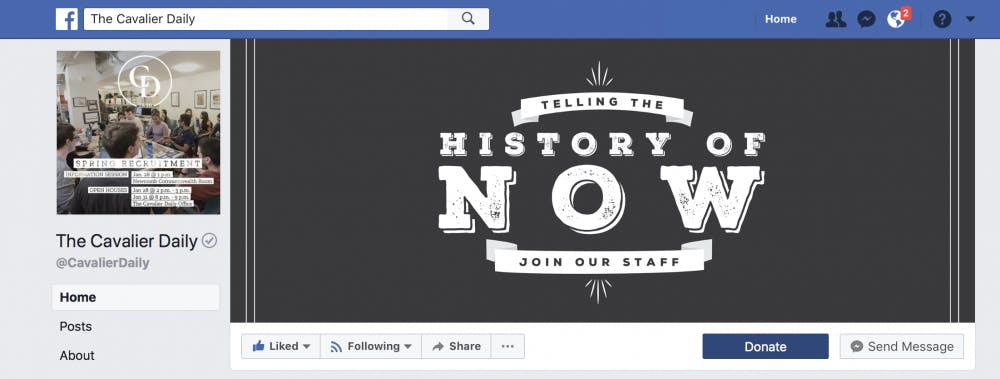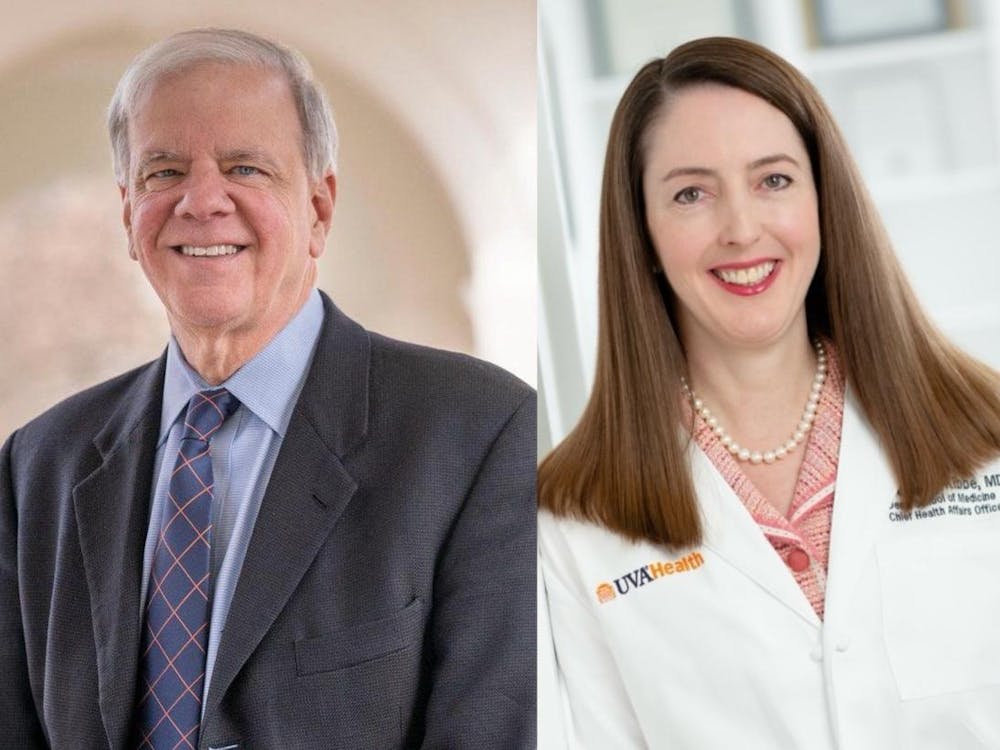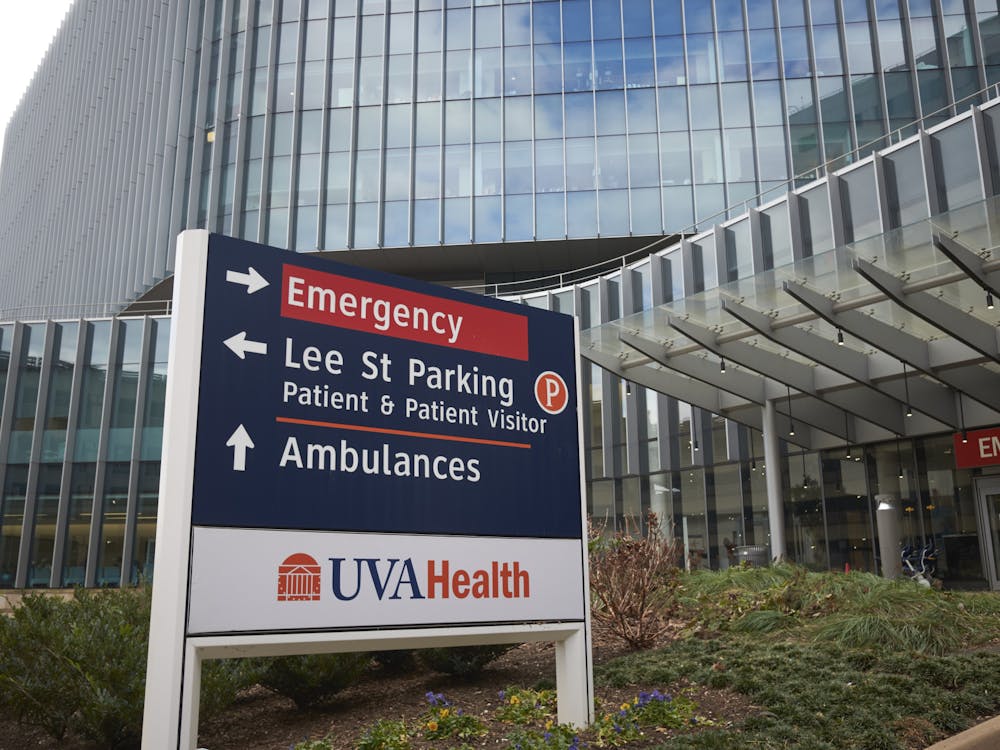In January, Facebook co-founder and CEO Mark Zuckerberg announced in a Facebook post that there will be changes to the News Feed in 2018. The changes are expected to be implemented over the course of several months.
The Facebook News Feed is a constantly refreshing feed of content shared by the user’s friends and the pages the user follows. Computer Science Prof. Gabriel Robins said the News Feed algorithm initially focused on maximizing the time users spent on Facebook, without any regard to how the content impacted the user.
“They would show things that would upset people, that would offend people, that would enrage people just to get them to stay on the page and to click on the next link to see something similar,” Robins said. “The algorithm doesn’t care if you’re getting depressed reading these things — it’s not programmed into it.”
However, the proposed changes to Facebook are beginning to take user well-being into account by focusing on connecting people to those they care about. Intending to promote “meaningful social interactions,” the News Feed will be shifting away from public content by companies and media and instead will prioritize posts by family and friends, Zuckerberg wrote. With this change, there is an anticipated decrease in time spent on Facebook.
Asst. Media Studies Prof. Kevin Driscoll said the proposed changes to the News Feed are in response to an increase of media content on Facebook. In recent years, many social media platforms — such as Twitter, YouTube and Snapchat — have undergone similar transitions to expand media coverage, leading to subsequent mission statement redefinition, said Driscoll.
“Facebook never promised to be a portal for news but it certainly didn't shy away from it,” Driscoll said. “Eventually turning to embrace the spread of news and trying to bring news onto the platform. It's something that was added to the system later. They certainly didn't think that news was going to be a central part of the platform.”
Robins said that the spread of media content on Facebook has caused the site to deviate from their goal of connecting people; the influx of outside material has distracted and disconnected them instead. In turn, Zuckerberg and other executives began to rethink the mechanisms behind their algorithms.
“There’s a complicated algorithmic formula that takes into account their browsing history,” Robins said. “Their interests, their likes and dislikes, even how long they stay on every particular page. It takes all that into account and tries to predict what they would be interested in watching or reading or seeing and then it just feeds it to them.”
Robins said the proposed changes will give higher priority to family and friends in a more user-centric approach. Although the algorithm itself is intrinsically indifferent, the News Feed’s reprioritization will likely be programmed in consideration of the content’s impact on the user.
There is a level of manipulation involved when the programmer of the News Feed algorithm decides which posts deserve higher priority, said Robins. Before changes to the News Feed were proposed, manipulation may have entailed prioritization of content pushing a political agenda or selling products if page owners paid to promote their post. The remedy to this manipulation is ensuring that the algorithm works altruistically, in a way that does not operate with a focus on receiving financial profit.
Rick Reifenstein, director of Technology and Innovation for the Office of the Dean of Students, said this user-centric shift will cause social media to grow at the University, especially in the creation of an online community for the University.
“With Facebook's recent changes they’re getting back to their roots of creating a sense of community and allowing people to create their own sense of community, not somebody who’s paying a lot of money to be part of the group,” Reifenstein said.
Reifenstein said ODOS uses social media to inform the University community by sharing events and information pertinent to the students. Since the social media activity of ODOS is determined by which platforms the students are using, an increase of students on Facebook may mean more ODOS activity on the site.
Like Reifenstein, Driscoll said social media plays a sizeable role in community-building on Grounds, forming a central part of the “informal education” here. Driscoll said that he has observed this “informal education” through the use of social media in communicating for group projects and the circulation of information relevant to the University.
Second-year College student Olivia Descanvelle said that Facebook has helped her navigate through new communities since starting at the University.
“Facebook has given me a platform to better organize my social life,” Descanvelle said. “Being in a sorority, a small community, means you meet a lot of people, so you have to keep track of them all. Facebook has given me a platform to keep track of all of these people [and] make plans with all of these people.”
Others, like second-year College students Emma Steinson and Avni Malik, use Facebook for entertainment purposes.
“I like the U.Va. Class of 2020 group because I see all of these people desperately looking for roommates and I’m like, ‘Thank God I have all of my roommates and the dank memes too,’” Steinson said, in reference the students-only Facebook group for the Class of 2020.
The use of Facebook as a platform for memes was echoed by Malik, highlighting their stress relieving benefits as well.
“Memes just make my day better,” Malik said. “I wake up every morning and check what memes I’ve been tagged in, it really helps me get my day started on the right foot.”
Given the varied uses of Facebook by students and the diverse population on Grounds, the University is a prime community to observe the effects of social media, said Driscoll.
“The University is a good place to look at social media because it's such a big dynamic community with people with lots of different backgrounds and interests who moved here all at once,” Driscoll said. “How are they are going to get in touch with each other? It's an interesting place to see it happen.”
As Facebook begins to implement the updated News Feed algorithm, the impact of these changes could become evident. According to Zuckerberg’s predictions, this change has the potential make the time users spend on Facebook more valuable and benefit communities over the long term; the University is one community that may exhibit these effects.





